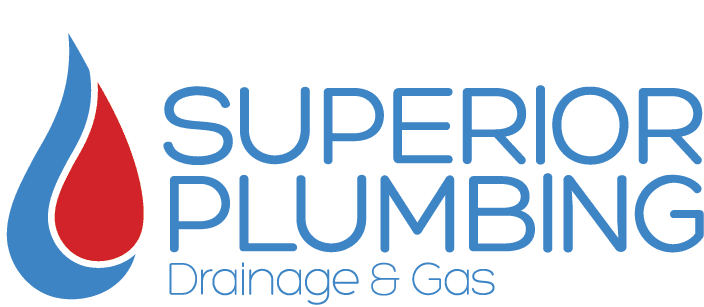Have you ever heard of a “fatberg”? While the word may sound made up, in reality, “fatbergs” are a multi-million-dollar problem in Western Australia — and you may unintentionally be causing them.
According to the Water Corporation, “fatbergs” — or “pipe monsters” — form when non-water-soluble items, such as wet wipes, sanitary products, nappies and cotton buds or cooking fats, oils, and greases are flushed down the toilet or poured down the sink. These foreign objects clump together and form big, solid blockages in the wastewater network — but they can also be the culprit behind a blocked drain or toilet at home in Perth!
Fatbergs can also wreak severe environmental damage if they cause sewerage to overflow at wastewater plants. This means untreated human waste and toxic industrial excess can flow into surrounding bodies of water, contaminating water sources and killing wildlife and natural ecosystems.
So, although it may be convenient to tip the leftover oil from the frying pan down the sink or flush a supposedly “flushable” wet wipe down the loo, it’s guaranteed to be an expensive, disgusting, and dangerous hassle later. Save your pipes, the environment, and wastewater facilities from the wrath of the “pipe monster” by following our handy guide on what not to flush down the toilet or pour down the sink.
Almost everything in the bathroom…
As the Water Corporation eloquently says, the only things that should be flushed down the toilet are the 3Ps: pee, poo and toilet paper. Beneath your house lay a complex series of pipes that need to twist and turn through subterranean channels to reach wastewater treatment facilities — without any blockages.
Toilet paper is a unique material because it needs to be sturdy enough to do its job properly, as well as soft enough to disintegrate when water touches it. Therefore, tissues and paper towels should never be flushed down the loo — their job is to hold their strength when you blow your nose or mop up a kitchen spill.
Tissues and paper towels aren’t the only culprits — cotton buds, wet wipes, nappies, sanitary products, razors and anything in between are also flushing no-nos. Keep a bathroom bin on hand to responsibly dispose of any unflushables.
If flushed, you’re sure to have a blocked toilet on your hands. Although we don’t want this to happen, if it does, Superior Plumbing is one of Perth’s most trusted blocked toilet plumbers and will have you back in business in no time.
… And the kitchen
Although certain ingredients — fats, oils, greases — can start in liquid form, they won’t stay that way once they make their way down the kitchen sink. After they’ve cooled, they’ll solidify into a hard, fatty mass and cling to the interior lining of your pipes.
This will obstruct other food items — which also shouldn’t be tipped down the sink — from passing through. Eventually, a clog will form, and you’ll be left with a blocked drain that will need to be fixed by Superior Plumbing, one of Perth’s most reliable blocked drain plumbers.
To avoid any sticky situations, wait until the fat has cooled and scrape the coagulated mass into the bin, and be sure to wipe greasy pans with a paper towel before rinsing them in the sink.
When it comes to food scraps, a sink strainer will catch any remnants from travelling down the drain — just be sure to regularly empty it into the bin. And if you consider yourself as having a green thumb, fruit and vegetable scraps, along with coffee grounds and tea leaves, make excellent compost fodder!
Hazardous household waste
Just because you can use certain products to clean your home, keep your car running smoothly or eradicate pests, it doesn’t mean they’re safe. Except for cleaning products that are safe to be flushed down the toilet (or poured down the sink), the following should never touch your pipes:
- Bleach
- Brake fluid
- Petrol
- Pesticides
- Batteries
- Oven cleaners
- Pool chemicals
Although they won’t be the reason behind a blocked drain, toilet, or shower, they contain toxic ingredients that can’t always be filtered out in water treatment plants. Not only does this risk contaminating our water supply and causing serious health issues, but it can also damage the environment.
If you’re not sure what to do with leftover hazardous household waste, refer to the safety instructions included on the label. In most instances, it can be taken to a local council disposal site.
Medicines
Medicines are in the same boat as hazardous household waste. If you flush them down the loo you won’t need to call a blocked toilet plumber — like Superior Plumbing — anytime soon, but they can take years to break down and can cause serious environmental damage.
In Perth, your unwanted or expired medicines can be safely disposed of via the Return Unwanted Medicine Project. Simply package them in a bag or container and take them to your local pharmacy and your pharmacist will do the rest.
Think before you sink
It may be our job but unclogging a blocked toilet that’s been stuffed with nappies, sanitary products and even toys isn’t particularly pleasant. But with some fatbergs weighing in at 130 tonnes, you can only imagine how difficult and laborious it would be for wastewater treatment employees to dismantle and remove them.
So, before you tip the remnants of your teapot down the kitchen sink, or flush a baby wipe down the toilet, stop and remember the tremendous sewerage consequences it may have — not to mention the damage it will cause to your plumbing system at home.
Superior Plumbing understands that sometimes, accidents happen. If you do find yourself with a blocked drain, toilet or shower in Perth, remember to give us a call for speedy and professional service every single day of the year — and with no call out fees.

